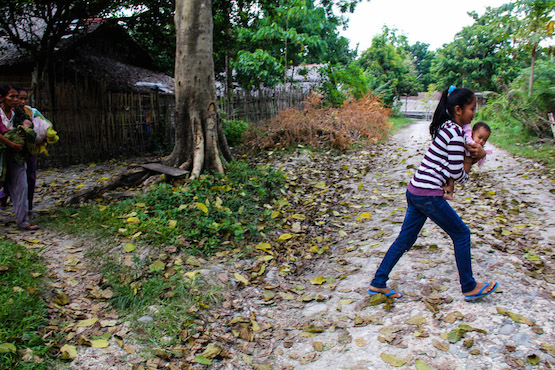No end in sight to conflict in Mindanao.
March 9, 2016 ·
Lack of government commitment may kill hopes for peace in southern Philippines

Philippine President Benigno Aquino’s government is leaving the carcass of its peace process with Mindanao’s restive Muslim minority to the next administration.
And for the first time after years of diplomacy, Moro rebels are confronting Aquino, blaming him and the country’s top officials of betraying a landmark deal that took 17 years to formulate.
A central committee member of the Moro Islamic Liberation Front has accused the Philippine government of killing the Moro people’s aspirations for self-determination.
“We raise our voices and fists in anger at the deception that has been foisted on our people, the false hopes that were offered on the plate of empty promises, and the sweet words of assurances that flowed from the forked tongues of charlatans,” said Robert Maulana Alonto.
The rebel leader said the government failed to do its part to stop decades of unrest that have killed more than 150,000 people and displaced millions of others.
Watered down twice
Aquino’s political allies are blaming opposition Senators Ferdinand Marcos Jr. and Juan Ponce Enrile for killing a proposed Bangsamoro Basic Law, which is a requisite to an exit agreement with the rebels.
Marcos and Enrile vehemently opposed the granting of an expanded autonomy to the Moro people of Mindanao.
The president’s key legislative allies in the House of Representatives, however, also watered down the draft measure last year, even after a meeting with Aquino in the presidential palace.
At that point, the 23,000-strong front warned that it would reject legislation that leaves them wards of the state with no say over the disposition of natural resources and no right to handle even donations from foreign nonstate entities.
Amid this grumbling, the government spent millions of pesos in a media and consultative campaign to press for the passage of the watered-down bill.
Despite concerns that the debacle has sparked a new upsurge of radicalism, the government still paints a rosy picture of the peace process, with no less than presidential peace adviser Teresita Deles pledging to implement the peace deal.
That is unlikely without a new law.
Mujiv Hataman, governor of the current Autonomous Region in Muslim Mindanao, said he can focus only on improving governance capabilities in the Bangsamoro provinces.
“We are not autonomous,” said Hataman. “The one determining or approving our budget allocation is the national government.”
“We cannot even plan medium-term because our funds are delayed, sometimes by six of nine months,” Hataman said. “If you don’t know what resources are available to you, how will you plan? How will you set priorities?”
The governor acknowledged the growing distrust among the Moro people on the government even as he defended the Aquino for doing everything for the peace process.
Harsh lessons
Naguib Sinarimbo, an attorney and member of the rebel’s peace panel, slammed the government’s optimistic remarks for a negotiated political settlement.
“How do we argue for peaceful settlement when a recidivist government has failed to comply with the agreements?” Sinarimbo said.
Rebel leader Al-Hajj Murad Ebrahim and rebel chief peace negotiator Mohagher Iqbal vowed to keep forces compliant to an existing cease-fire.
The rebel group even stood down during a recent clash between government forces and an Islamist terror group that killed more than 20 people. Rebel-controlled territories were also opened for some 20,000 civilians who escaped from the clash.
Alonto’s remarks, however, openly displayed, for the first time, internal disagreements over confidence-boosting measures, like the premature decommissioning of some 70 firearms.
The Bangsamoro can’t pin hopes on a government that has dangled false hopes and commitments it does not intend to deliver.
“With not even a sigh of remorse, no sign of contrition on their part for this serialized travesty of justice, [the government] now insults us by saying that the next regime has the option to abrogate the peace agreement or renegotiate,” said Alonto.
Two years ago, warriors wept as peace negotiators signed a peace deal that would have paved the way for an end to strife in Mindanao.
Now some fighters, including Alonto, see the government as incorrigibly beyond appeasement either within or outside the parameters of the peace agreement, and seems to be only after the total capitulation of the rebel movement.






